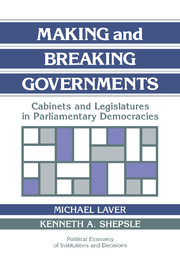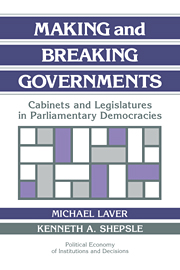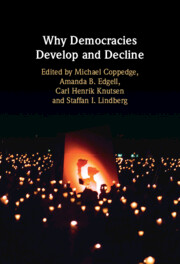Government Survival in Parliamentary Democracies
A highly puzzling phenomena in politics is why some parliamentary democracies, such as Britain, manage to produce highly durable governments, whereas others, such as Italy, experience governmental instability. This book reports the results of a quantitative investigation of the issue, using an innovative statistical methodology and a new data set covering sixteen West European countries over the entire postwar period. The results fundamentally challenge current theorizing on government survival and point to an alternative perspective on the relationship among governments, parties, and voters.
- Focuses exclusively on the subject of government survival
- Extensive quantitative study of 16 European countries, covering the entire post-war period
Reviews & endorsements
"Warwick's book will challenge students of governmental survival to rethink and sharpen their own models. His focus on ideological diversity within governments and economic trends adds useful perspectives." Journal of Politics
Product details
January 1995Hardback
9780521470285
200 pages
237 × 157 × 18 mm
0.422kg
6 b/w illus. 43 tables
Available
Table of Contents
- List of tables and figures
- Preface
- 1. Introduction: the government survival debates
- 2. The quantitative study of government survival
- 3. Basic attributes and government survival
- 4. The role of ideology
- 5. Economic conditions and government survival
- 6. The underlying trend in government survival
- 7. Model adequacy
- 8. Conclusion: an alternative perspective on government survival
- Appendix: a codebook of variables used in this study
- Notes
- References
- Index.










